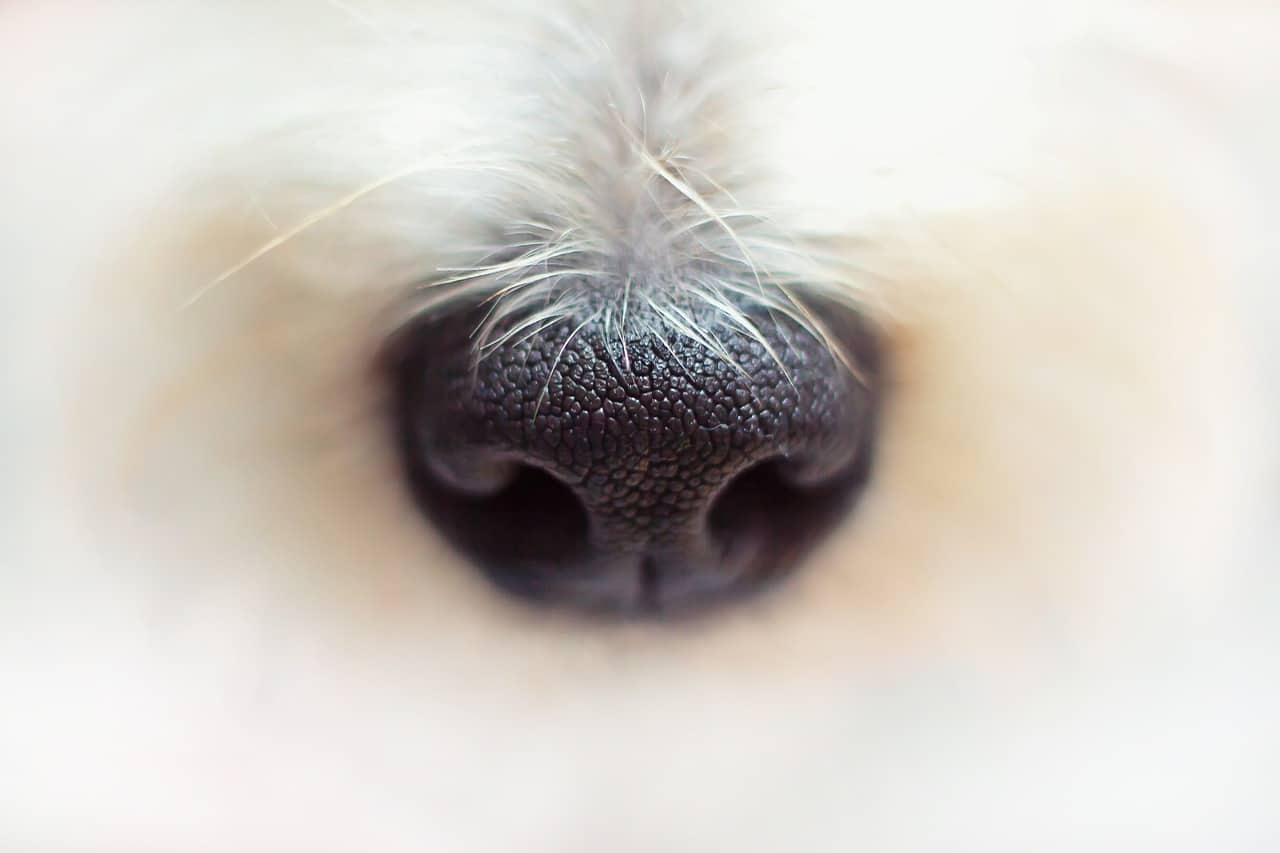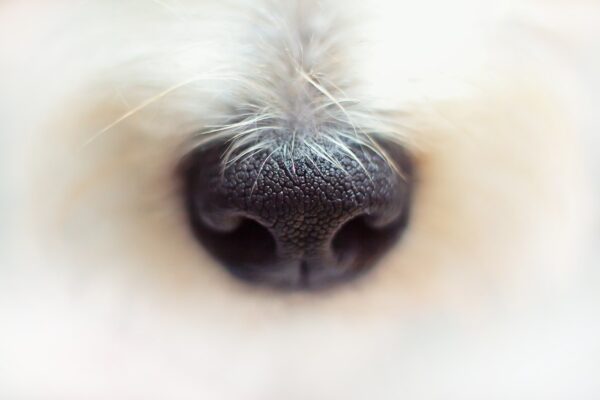My dog Max has severe chapping around his nose and now his mouth is starting to get sore. I’ve had him on antibiotics and prednisone three times in the last year. It helps while he’s on it but as soon as he goes off it comes back.
His nose also runs all the time. We’ve also used topical creams, but nothing seems to help. What can I do? (Max is a Pyrennian Mastiff).
Jaymie
Salem, OH
Chronic chapping of the nose is common in dogs. It occurs most often at the junction of the regular haired skin and the unique hairless skin on the nose (an area called the mucocutaneous junction). The lips, eyes, genitalia, and anus also have mucocutaneous junctions, and they also may be sites of chronic chapping or soreness.
Chapped noses in dogs most often are caused by irregularities in the immune system. A number of different syndromes with scary sounding names such as lupus and pemphigus may be involved. In these syndromes, the immune system becomes over active and attacks the skin, usually at the mucocutaneous junction. The syndromes generally are not life-threatening.
Collies and Shepherds appear to be predisposed to chapped noses. In fact, some vets colloquially refer to chapped noses as “Collie Nose”. However, any breed of dog may be affected.
As you have learned, treating chronically chapped noses in pets can very frustrating. Avoiding sun exposure and supplementing the diet with vitamin E may help, but I wouldn’t expect a miracle from these therapies in your dog’s case.
I would recommend that your dog undergo a biopsy of the affected area. This should be done at a time when your dog is not receiving prednisone. Obtaining a histological diagnosis for your dog’s problem may help to direct therapy for the problem.
To address this issue, your dog may need to take long term immunomodulating drugs. This will be best done under the supervision of a specialist in veterinary dermatology.
My experience has been that curing cases such as the one you describe is nearly impossible. However, with targeted intervention the problem usually can be controlled.
- Related Read: Do Dogs Have Lips? 6 Dog Mouth Questions Answered
Photo: pleple2000.










